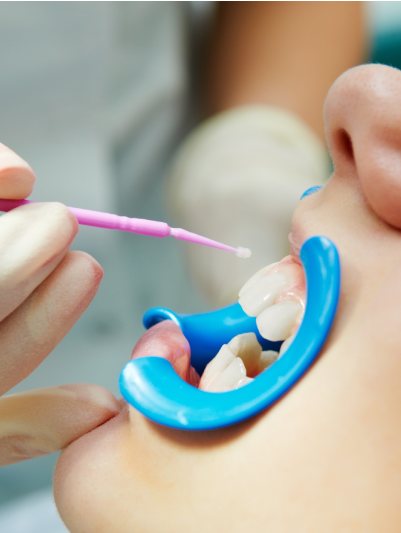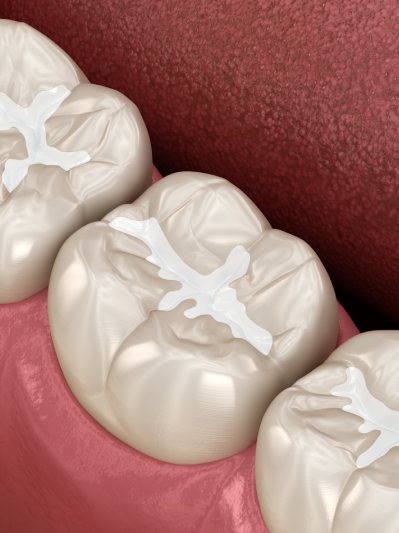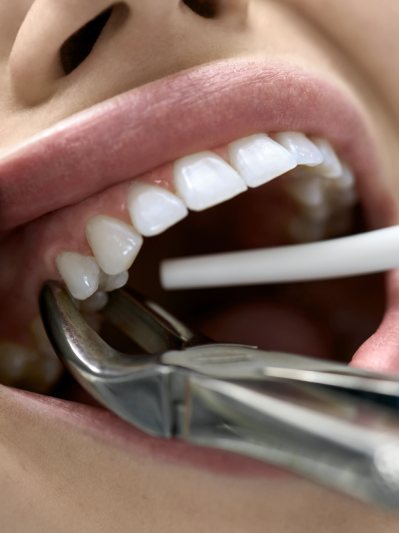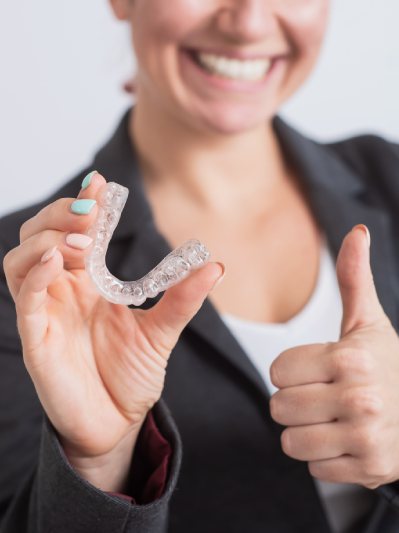METROPOLIS DENTAL GROUP
General Dentist Burnaby, BC
Metropolis Dental Group
Your General Dentist Burnaby, BC
The key purpose of your general dentist Burnaby, BC is to encourage good dental hygiene. Regularly booking appointments with our experts helps to ensure the prevention of oral diseases. The majority of our dental treatments are completed to treat or prevent tooth decay and periodontal (gum) disease. Your oral hygiene affects every aspect of your life. Besides leading to anxiety and low self-confidence from the poor appearance of teeth, oral diseases can increase your risk of health problems.
Poor oral hygiene has recently been discovered to increase your risk of diabetes, cancer, stroke, dementia, and heart conditions. Symptoms of poor oral hygiene could include pain, cavities, gum inflammation and bleeding, disfigurement, and chronic or acute infections. Our dentists can help educate you on proper oral hygiene and provide examinations to identify dental problems before they become severe. Your conveniently located general dentist Burnaby, BC can take care of your teeth, to help you and your loved ones with your health and wellbeing.
General Dentistry that we offer at Metropolis Dental Group.

Dental Bonding at your General Dentist Burnaby, BC
Dental bonding is the process by which a specialized resin is used to repair a damaged or malformed tooth. This treatment is an easy, non-invasive, and painless cosmetic procedure that will enhance both your smile and confidence in no more than one short appointment.
Before treatment, your general dentist Burnaby, BC will take x-rays and examine your teeth to ensure there are no other more pressing issues such as gum disease, tooth decay, or other oral diseases. Once you’re cleared, our experts will match the resin shade to your teeth, then quickly prep your tooth before applying the resin. The resin is molded, shaped, and smoothed before being cured with a specially designed curing light, causing it to bond to the surface of your tooth. Once set, the resin is shaped and polished until it matches the natural appearance of your other teeth. The bond should last anywhere between 3-10 years, depending on the patient.
Dental bonding is completely reversible, meaning that it can be removed if you are unsure of the appearance or need to have it taken out for any health-related reasons. Contact our dentists if your notice any damage or have any concerns about your bond post-treatment.

Dental Sealants
Although brushing, flossing and mouthwashes are efficient ways to remove food particles, bacteria, and plaque from teeth, they aren’t always guaranteed to remove these substances from the hard-to-reach places in your mouth. A dental sealant is a thin, plastic coating applied to these areas and the chewing surfaces of teeth to prevent tooth decay.
This treatment is applied after a thorough cleaning in a dental hygiene appointment and quickly forms a protective shield over the enamel of the teeth. This quick treatment is applied in only a few minutes, is non-invasive, and reduces the risk of cavities by up to 80%.
Typically, dental sealants are recommended to both adults, as well as children once their permanent teeth have come in. Although dental sealants will wear out over time, most will typically last 10 years. Your general dentist Burnaby, BC will always check these sealants during your bimonthly cleaning and will re-apply the treatment if your sealants have worn down too much for efficient protection.

Oral Sedation
It can be uncomfortable and even painful to have someone poking and prodding inside your mouth. We know that many people avoid going to the dentist for years because of this; that’s why we offer sedation dentistry.
In sedation dentistry, a patient takes a sedative before or during their appointment. This way, the patient is sedated and relaxed throughout the procedure, with very little memory of the appointment after.
For oral sedation, you’ll receive a prescription for sedative pills written by our dentists before the appointment. Your general dentist Burnaby, BC will give you instructions about when and how to take them. Once you have taken oral sedation, it will act quickly and take some time to wear off, so be sure to have someone drive you to and from your appointment.

Composite Fillings at your General Dentist Burnaby, BC
Composite fillings involve applying a mix of plastic and ceramic tooth-coloured material, known as resin fillings, to repair chips, cracks, and other damage. However, this procedure is most commonly used to repair cavities. Decay caused by cavities is often extensive and composite fillings are just one method that dentists use to repair this damage.
During this process, the decayed material in the tooth is removed, then the filling is applied to the area to fill in the hole. The composite resin is layered onto the tooth, cured, and shaped to look natural before being polished. Your dentist will then check your bite to make sure you’re comfortable with the results.
You might experience pain or sensitivity to temperatures after the procedure, which could last anywhere between 2 to 4 weeks. However, you should contact your general dentist Burnaby, BC if the sensitivity lasts longer than a month. Typically, composite fillings last 5-10 years, depending on care and an individual’s tendency to get cavities. Talk to our experts if you have any concerns.

Root Canals
Although root canals have a reputation in modern media for being painful and traumatic, modern medicine and the experience of our experts guarantee your safety and comfort during the procedure. Your general dentist Burnaby, BC wants you to know that avoiding a root canal is more painful than the procedure. Decay, tooth trauma, or periodontal disease causing the infection, as well as the infection itself could lead to more serious issues such as prominent pain, dental abscess, or systemic infection.
Yes, a root canal can be daunting, but this procedure can save an infected tooth and allows the patient to keep it even if there is extensive decay or damage. Moreover, a root canal is a better and safer alternative compared to tooth extraction. Tooth extraction could lead to issues such as teeth moving out of position and becoming crooked, reduced ability to chew, dry socket, bite collapse, avascular necrosis, or nerve injury. Many of these risks could lead to additional treatment and costs required later on. Usually, tooth extraction also requires the placement of a bridge or other such devices, furthering the cost of treatment.

Teeth Extractions & Wisdom Tooth Extractions
There are many reasons why patients need to have their wisdom teeth removed. The teeth may be unhealthy or positioned incorrectly, which could lead to more serious problems. The wisdom teeth may remain unerupted in the gums and become trapped in the jaw, which could lead to infections or abscesses damaging the roots of nearby molars and jawbone. Left unattended, these issues could lead to more serious conditions such as sinus involvement, brain infection, heart complications, and death.
Wisdom teeth that erupt only partially may be prone to cavities and other oral health issues as they cannot be cleaned properly. Even if the teeth are healthy and have erupted fully, they may need to be removed to prevent overcrowding in the mouth. Wisdom tooth removal is a procedure requiring sedation. Recovery time is typically two weeks, during which the patient will experience pain and swelling.
Many of the reasons for wisdom tooth removal also apply to tooth extraction. Typically, tooth extraction may be recommended if the tooth and/or jaw is experiencing periodontal disease, impaction, overcrowding, tooth decay, or trauma. Patients don’t always require sedation and recovery time is usually 48-72 hours. Your general dentist Burnaby, BC can help you navigate all the specifics about your tooth extraction treatment.

Night Guards and Mouth Guards
A mouth guard is a protective device that covers the teeth and gums of an individual to prevent and/or reduce damage and injury to the teeth, arches, lips, and gums. Mouth guards are customized to each patient, meaning they will fit properly in the mouth and reduce breathing difficulties commonly associated with most generic mouth guards. Typically, these devices are recommended to and worn by athletes in high-contact sports to prevent serious damage and avoid the consequences and costs of spending many months and thousands of dollars on reconstructive work.
A night guard, though similar in structure, is different from a mouth guard. The goal of night guards is to prevent damage caused by bruxism (involuntary teeth grinding) while the patient sleeps. Symptoms of grinding include sore jaw muscles, headaches, neck or ear pain, and/or restless sleep. Beyond the painful symptoms, grinding can cause permanent damage and wear to your teeth and jaws. Your general dentist Burnaby, BC can identify bruxism in patients and create a customized night guard that fits over your teeth to prevent grinding and allow your jaw to rest in a more relaxed state, so you can get back to enjoying life.
Metropolis Dental Group
Accepting New Patients

